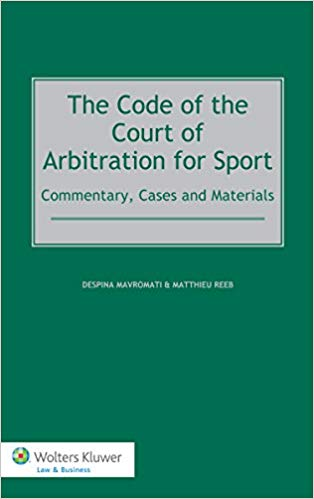We are now closed for the Christmas and New Year period, returning on Monday 5th January 2026. Orders placed during this time will be processed upon our return on 5th January.

The Court of Arbitration for Sport (CAS) provides international sport with an independent authority specialising in sports-related disputes. Able to render binding decisions, CAS is dedicated to the settlement of sporting disputes swiftly and inexpensively.
Since its inception in 1984, it has time and time again earned the recognition and respect of all stakeholders in the sporting world, who regard its decisions as equivalent to judgments passed by state courts. In the words of the Swiss Federal Tribunal: “Having gradually built up the trust of the sporting world, this institution which is now widely recognised … remains one of the principal mainstays of organised sport.”
This is the first comprehensive commentary offering an exhaustive article-by-article analysis of the CAS Rules. Each provision is viewed within the larger context of international arbitration, supplemented by relevant doctrine, case law, and documents and materials from internal CAS practice. Among the topics covered are the following:-